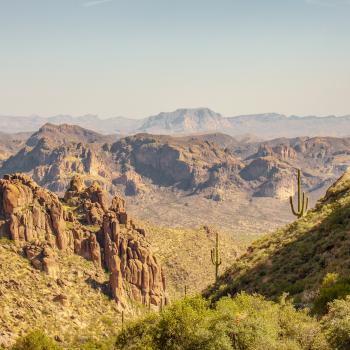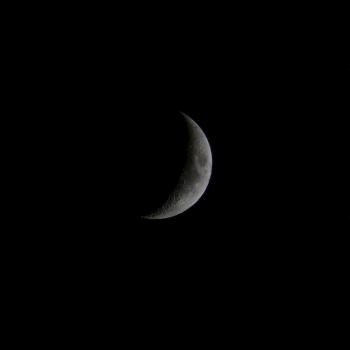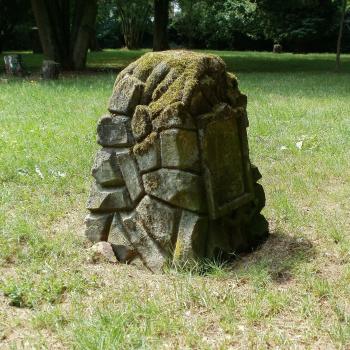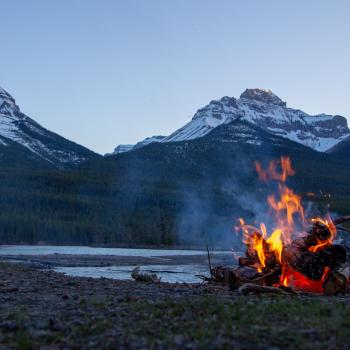For the next few weeks, we’ll be delving into the 30 Days of Devotion, a devotional writing project that helps us explore the gods we worship. We will do each of these for each of the Four Gods. If you are an Other Person or exploring the Four Gods, feel free to add your own comments – or join in!
If you have another topic you would like to see written on, you can email me ([email protected]) or message me on Facebook – but my writing will likely go to one of my other blogs, as we’re focusing on the Otherfaith at this blog for the time being.
Update: I was able to make my goal for my fundraiser, which means I will be attending the 2014 Polytheist Leadership Conference. I look forward to seeing people there!
Social Issues
The next prompt for the 30 Days of Devotion (which I had to stall due to a combination of schoolwork, Camp Nanowrimo, and other Otherfaith writing) focuses on the modern social issues connecting to our god. And the Clarene has many, some of which I am not equipped nor should I speak on extensively as they fall out of the realm of my experience.
the Clarene, like the Dierne, is concerned with oppression and destroying oppressive systems. (the Laetha and Ophelia are connected to this same goal, but it is not as central to them.) This starts from the moment she disobeys her mother and chases after love, and it is mirrored in every variation of her birth and pre-Kingship myth. This confrontation does not always end well; the Clarene is described in some myths as bearing ‘hundreds of scars’ and having suffered from a world that denied her. Denied her love, her existence, and her worth.
This destruction of oppression is part of why the syncretic god the Ophelene is a retribution god, a god of justice. She is far more violent than the Clarene, however, and since the Clarene is the mother of guns and weaponry that is quite notable. the Clarene is the one who tears up the concrete to let the seeds grow (as well as the one who lays concrete). Her resistance and rebellion is often much quieter and subtle than the Ophelene’s or Dierne’s. It often is just as bloody, however.
the Dierne and Clarene’s issues also intersect when it comes to sex workers. Though the two gods do not get along well, the Clarene is the most protective of the Dierne when he is wandering as a sex worker, and it is the Clarene who the Dierne goes to when dealing with the abuse and harassment that comes from doing his work in a world that is so painfully, destructively conflicted around sex and sexuality. the Clarene also has under her arms asexuality and the struggle for acceptance, however; a number of her lovers are non-sexual or a-sexual, and what bonds them is not sex but mutual adoration of each other.
As the Clarene is disabled, she also has ties to the fight for acceptance and respect there. Her disability is there, it should not be ignored, but nor is it the entirety of who she is. If we treat it either way, we are failing to give her the respect she deserves.
She is close to, as well, combating racism. This is one area I am not able to speak on well, except to say that the Ophelia and Clarene are both gods of color and are tied to fighting against racism and racist systems that continue to be present in our lives today.
Environmental degradation and devastation, as well as the destruction of our agricultural lands, are social issues the Clarene is very interested in. She takes care of the Orchards and grows the fruits that sustain the West, after all, and she knows how easily one domino can set the whole thing tumbling down. She also cares for the wild and for the future of our wild places – federal parks are important to her.
Connected to this is her focus on food and feeding others. She wants us to be sustained and sustainable, and she doesn’t want anyone going hungry. People deserve shelter and food and warmth – all things she is connected to.
That said, she is not invested in only the rural or the wild. She is connected to innovation (she’s simply aware of the great catastrophw that inevitably awaits it), and so she is tied to scientific developments and progress. She approaches it quite differently from the Laetha, who presides over artificial intelligence and robotics especially, and is more cautious than her son. She is aware of the dangers posed in technological and scientific advances, and she seeks a balance between the new world we’re emerging into and the world we are building that world on.
Finally, like the Dierne, the Clarene is associated with gender play – refusal to fall into gender norms, physical transitioning for those who wish it, surgeries that help someone show who they really are, the joyful indulging of who a person is, regardless of what their society says gender has to be. Truly, though, each of the gods is tied to this. How could they not be, considering their origins, considering the nature of faeries as in-between and nonsensical to humans (or, rather, to the norm and expected)?
Previous Posts
Basics: Four Gods (Redux) [Patheos]
Basics: Clarene (Origins)
Basics: Clarene (Myths)
Basics: Clarene (Family)
Basics: Clarene (Spirits)
Basics: Clarene (Names)
Basics: Clarene (Variations)
Basics: Clarene (Mistakes)
Basics: the Clarene (Offerings)
Basics: the Clarene (Holy Days)
Basics: the Clarene (Places)
*
Want to participate in the 30 Days of Devotion? Here’s a great link with all the prompts.
We are holding an Otherfaith discussion group every first Sunday of the month. Click here for more details, and send me a message or leave a comment if you would like to join!
New visitor and a little confused where to start? Head over to our About and Otherfaith pages, and then meander over to the beginning of our ‘basics‘ series. Any questions can be directed to my email [email protected].
[Want more of the blog? Follow through RSS and Facebook to receive consistent updates!]
















